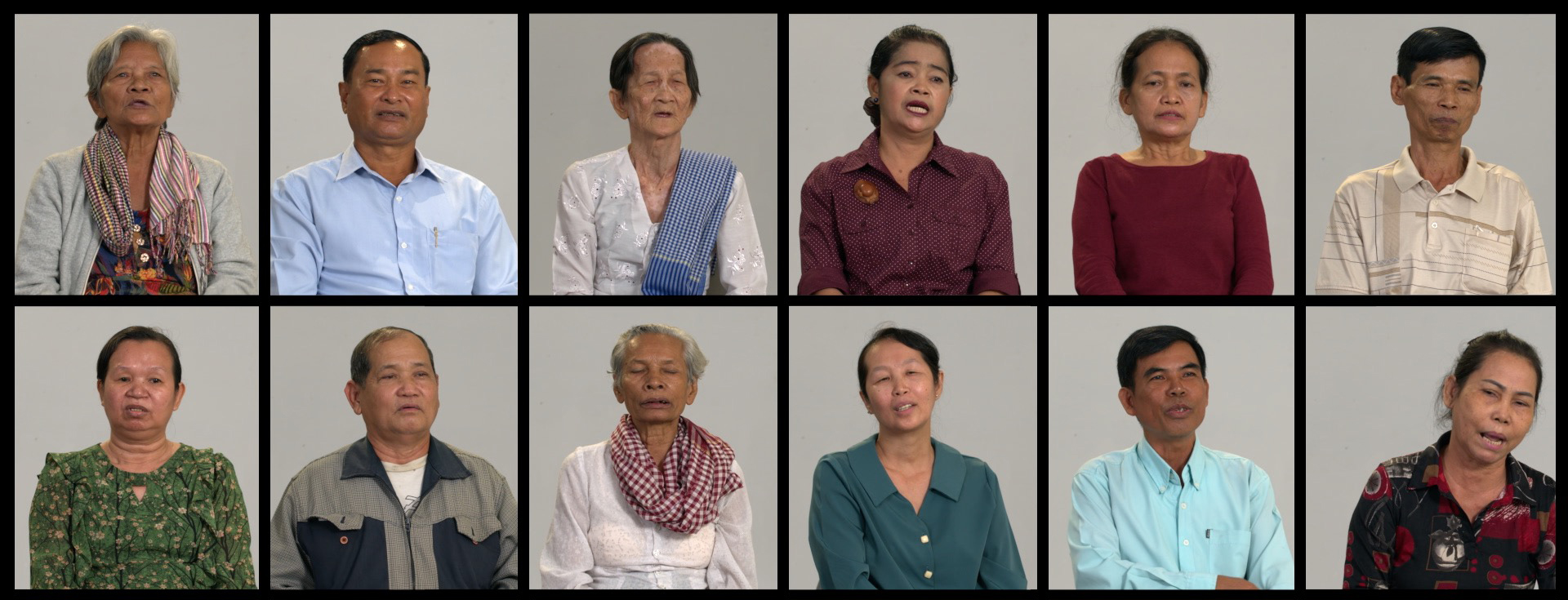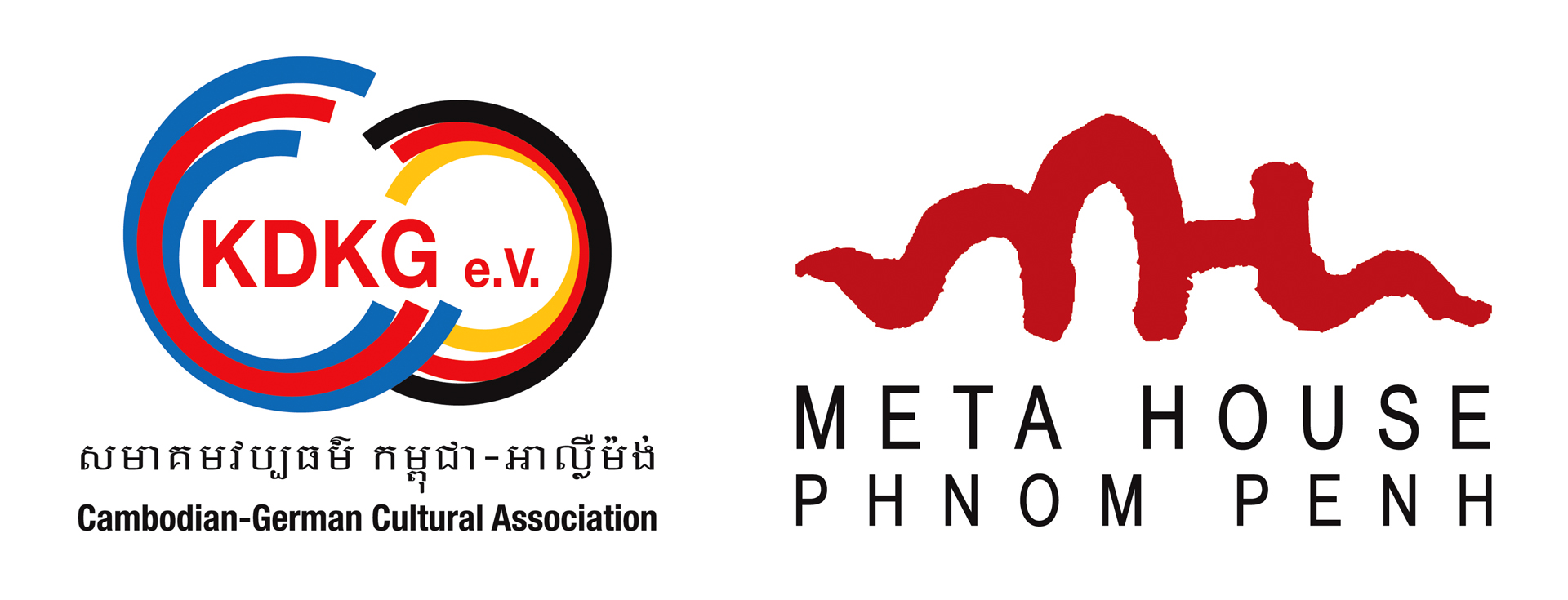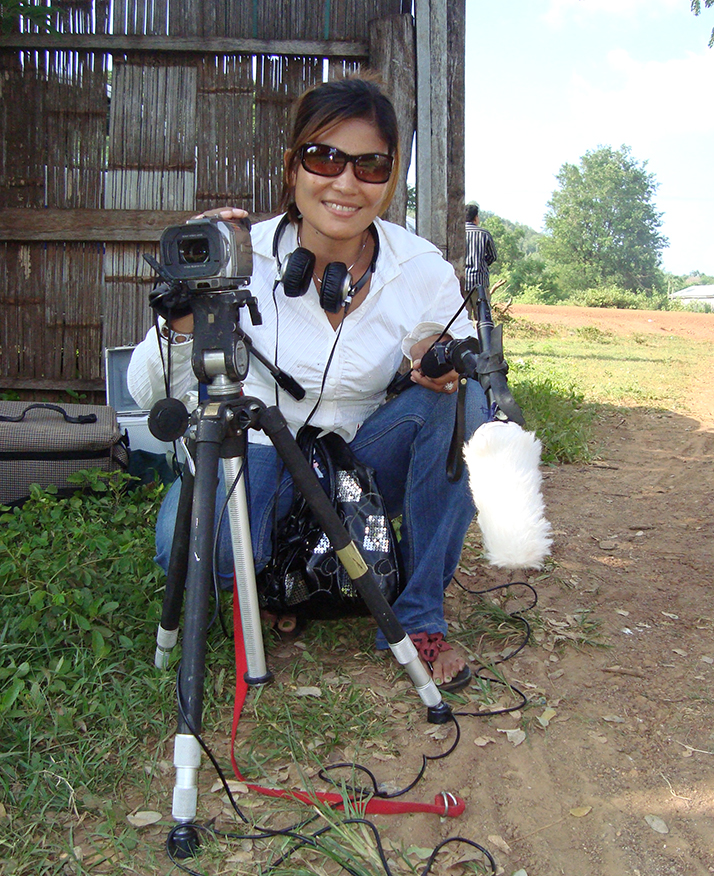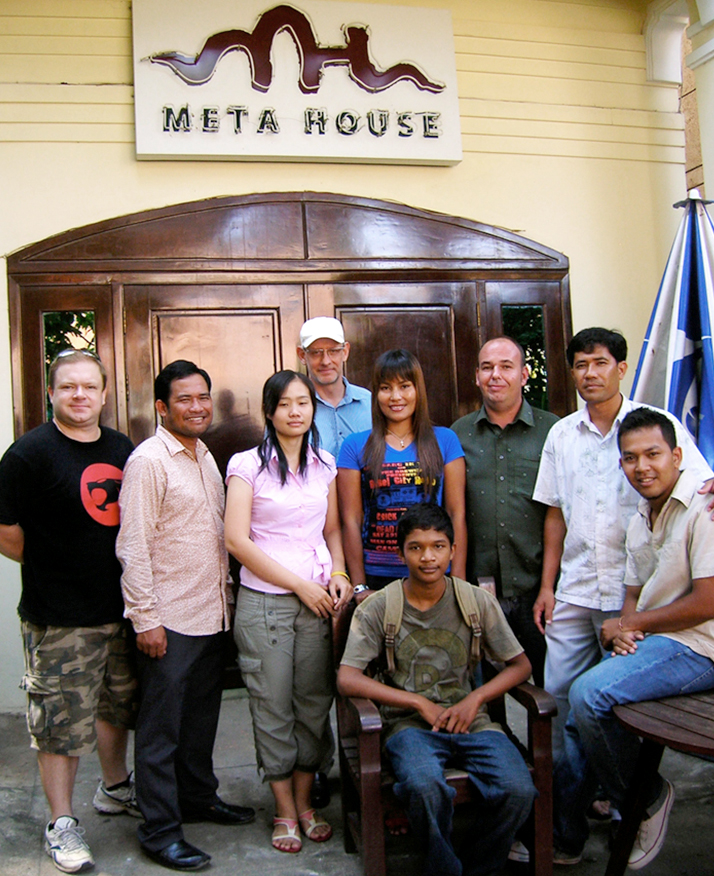THE VIRTUAL MEMORIAL PROJECT
THE PROJECT
The “Virtual Memorial” project provides an interactive online multi-media platform that educates future generations and memorializes the mass atrocities committed under Khmer Rouge rule. The project provides Cambodian youth with access to video testimonies of Khmer Rouge survivors, as well as relevant documentaries, photos, paintings, and archival documents. This window into the past is vital in shaping the upcoming generations’ perceptions of historical events as well as their hopes for the future.
META HOUSE
Cambodia’s first independent arts, media and communication center, is spearheading the Virtual Memorial project under the umbrella of Cambodian-German Cultural Organization (KDKG). The project was supported by the German “Institute for Foreign Relations” (IFA) through the ZIVIK fund from 2019-21. Meta House continues to interview survivors (in close cooperation with other NGOs and donors) in an attempt to create a complete holistic record. This complete record can then be viewed by future generations that otherwise would not have the opportunities to physically meet survivors and learn from their experiences.
BUILDING A BRIGHTER FUTURE
The violent power that shattered Cambodian society has scattered the nation and left a profound sense of dislocation. There needs to an extensive bibliographic, photographic, and geographic database of information related to the actions of the Khmer Rouge regime. In reconstructing a historical narrative of the events before, during, and after the Khmer Rouge era, Cambodia will have a firm foundation upon which it can rebuild its society to a better, brighter future.
SIMILAR PROGRAMS WORLDWIDE
Survivor testimonies—firsthand accounts from individuals who lived through genocide and other atrocities—help students more deeply appreciate and empathize with the human and inhuman dimensions of important moments in history. Programs such as the Shoah Foundation (https://sfi.usc.edu/) and the Fortunoff Video Archive (https://fortunoff.library.yale.edu/) provide open access to in-depth audiovisual testimonies of survivors and witnesses of the Holocaust and other genocides. At the “Free University Berlin” (FU), the Center for Digital Systems (https://www.zwangsarbeitarchiv.de/en/projekt/beschreibung/index.html)has digitized video and audio recordings regarding the history of forced labor in Hitler-Germany.
ONGOING BENEFITS
Understanding the causes of systemic violence is the only way such crimes against others can be prevented. What is needed is to understand the causes linked to this complex phenomenon and the steps leading up to it. This requires a pedagogical approach that will ultimately activate students’ intellectual, emotional and ethical engagement. Education remains the key to breaking the cycle of hatred which in its extreme forms can lead to genocide. The “Virtual Memorial” project gives students a chance to explore a deeply intricate, challenging topic that has affected mankind since its inception by: 1) Exploring their identity and belonging as well as that of others when in relationship; 2) Understanding the value and challenges of being a part of a group; 3) Identifying when and how one can stand up for others; 4) Analyzing the terms “justice”, “prejudice”, and “responsibility”.
PRESERVING HISTORY
The Virtual Memorial Project gives access to a priceless experience. The invaluable knowledge gained from listening to first person accounts of the Khmer Rouge era portray emotion, information, and sincerity — elements that would otherwise be lost. Without a virtual memorial dedicated to archiving the experiences of the generations that endured brutal reign of the Khmer Rouge, their stories will become altered and fade into myth. It is vital that Cambodians do them justice and ensure that their stories and experiences will never be forgotten and never repeated.
RELATED PROJECTS
Two to three generations after the Khmer Rouge seized power in Cambodia, the Kingdom’s brutal past is largely hidden from young Cambodians. Survivor testimonies are firsthand accounts from individuals who lived through the genocide. They help to empathize with the human and inhuman dimensions of important moments in history. In the framework of our project, Cambodian filmmakers such as Sao Sopheak (photo) have recorded the voices of Cambodians from all walks of life to ensure that future generations can learn from the past and that history does not repeat itself.
The recent history of Cambodia and Germany has many similarities, as both countries had to come to terms with genocide and trauma. Since 2007, the Cambodian-German Cultural Center Meta House Phnom Penh (photo) showcases a unique blend of art, education and social engagement. Cambodian and foreign experts tackle Cambodia’s recent past and the Pol Pot legacy through groundbreaking projects, which include interactive theatre, intergenerational dialogues, film screenings, as well as photo and art exhibitions in schools and universities nationwide.
From 2015-2018, Meta House implemented two judicial reparation projects under the umbrella of the Khmer Rouge Tribunal (ECCC), directly benefiting over 2000 Khmer Rouge survivors and over 50,000 students. Both projects – funded by the European Commission and the German Institute for Foreign Relations (IFA) – promoted peace, memoralization and reconciliation through theatre in schools and unversities, intergenerational dialogues, video film production and photo projects. Selected media from these projects is part of this website.
This website contains material that may be disturbing. User discretion is advised. Information or opinions expressed here are solely those of the individuals involved and do not necessarily represent those of Meta House Phnom Penh, NGO KDKG and its employees. Copyright Virtual Memorial Asia. All rights reserved.





